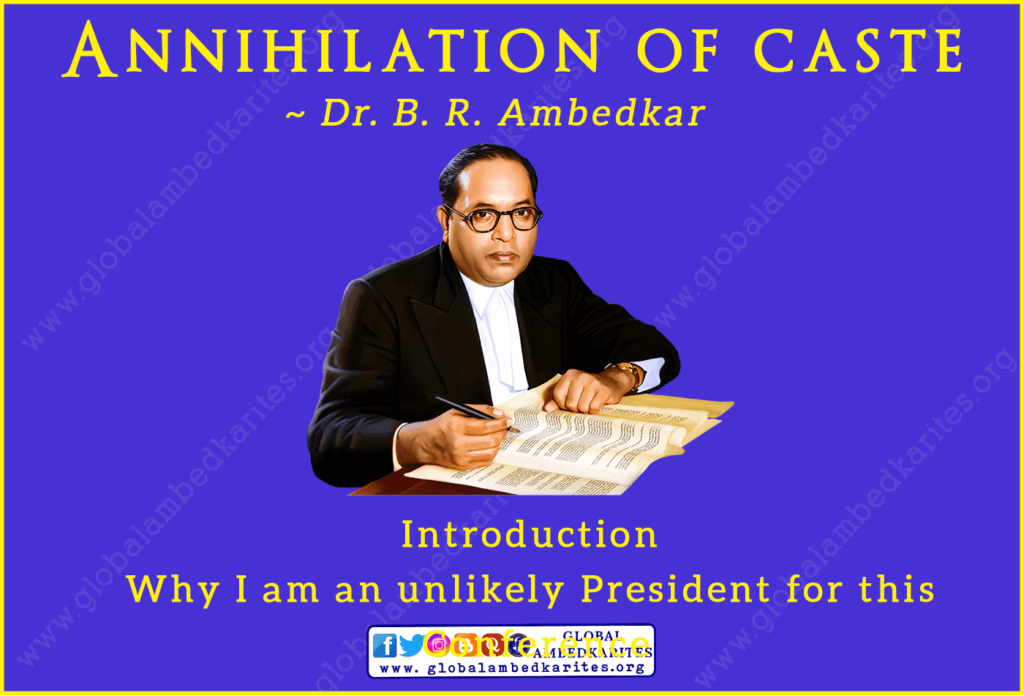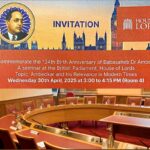
[1:] Friends,
I am really sorry for the members of the Jat-Pat-Todak Mandal who have so very kindly invited me to preside over this Conference. I am sure they will be asked many questions for having selected me as the President. The Mandal will be asked to explain as to why it has imported a man from Bombay to preside over a function which is held in Lahore. I believe the Mandal could easily have found someone better qualified than myself to preside on the occasion. I have criticised the Hindus. I have questioned the authority of the Mahatma whom they revere. They hate me. To them I am a snake in their garden. The Mandal will no doubt be asked by the politically-minded Hindus to explain why it has called me to fill this place of honour. It is an act of great daring. I shall not be surprized if some political Hindus regard it as an
insult. This selection of me certainly cannot please the ordinary religiously-minded Hindus.
[2:] The Mandal may be asked to explain why it has disobeyed the Shastric injunction in selecting the President. According to the Shastras, the Brahmin is appointed to be the Guru for the three Varnas, , is a direction of the Shastras. The Mandal therefore knows from whom a Hindu should take his lessons and from whom he should not. The Shastras do not permit a Hindu to accept anyone as his Guru merely because he is well-versed. This is made very clear by Ramdas, a Brahmin saint from Maharashtra, who is alleged to have inspired Shivaji to establish a Hindu Raj. In his Dasbodh, a socio-politico-religious treatise in Marathi verse, Ramdas asks, addressing the Hindus, can we accept an Antyaja to be our Guru because he is a Pandit (i.e. learned)? He gives an answer in the negative.
[3:] What replies to give to these questions is a matter which I must leave to the Mandal. The Mandal knows best the reasons which led it to travel to Bombay to select a president, to fix upon a man so repugnant to the Hindus, and to descend so low in the scale as to select an Antyaja—an untouchable— to address an audience of the Savarnas. As for myself, you will allow me to say that I have accepted the invitation much against my will, and also against the will of manyof my fellow untouchables. I know that the Hindus are sick of me. I know that I am not a persona grata [=someonewelcome] with them. Knowing all this, I have deliberately kept myself away from them. I have no desire to inflict myself upon them. I have been giving expression to my views from my own platform. This has already caused a great deal of
heart-burning and irritation.
[4:] I have no desire to ascend the platform of the Hindus, to do within their sight what I have been doing within their hearing. If I am here it is because of your choice and not because of my wish. Yours is a cause of social reform. That cause has always made an appeal to me, and it is because of this that I felt I ought not to refuse an opportunity of helping the cause—especially when you think that I can help it. Whether what I am going to say today will help you in any way to solve the problem you are grappling with, is for you to judge. All I hope to do is to place before you my views on the
problem.




